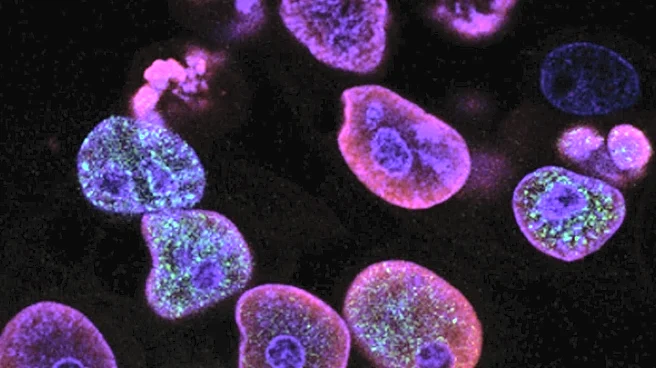What's Happening?
Recent research has identified the cancer-testis antigen NY-ESO-1 as a significant factor in cancer metastasis and poor patient prognosis. The study found that NY-ESO-1 expression is associated with reduced survival rates in patients with immune-cold tumors, such as breast, lung, gastric, and myeloma cancers. The protein promotes anoikis resistance, allowing cancer cells to survive during metastasis. NY-ESO-1 achieves this by stabilizing the protein phosphatase PP1α, which in turn activates the ERK1/2 pathway, a known promoter of metastasis. The study highlights the potential of targeting NY-ESO-1 and its pathways as a therapeutic strategy against cancer metastasis.
Why It's Important?
The findings underscore the critical role of NY-ESO-1 in cancer progression, particularly in metastasis, which is responsible for the majority of cancer-related deaths. By understanding the mechanisms through which NY-ESO-1 operates, new therapeutic targets can be developed to inhibit its function, potentially improving survival rates for patients with aggressive cancers. This research could lead to the development of drugs that specifically target NY-ESO-1 or its downstream pathways, offering new hope for patients with limited treatment options.
What's Next?
Future research will likely focus on developing inhibitors that can effectively target NY-ESO-1 or its associated pathways. Clinical trials may be initiated to test the efficacy of such treatments in reducing metastasis and improving patient outcomes. Additionally, further studies are needed to explore the role of NY-ESO-1 in other cancer types and its potential as a universal target for cancer therapy.









